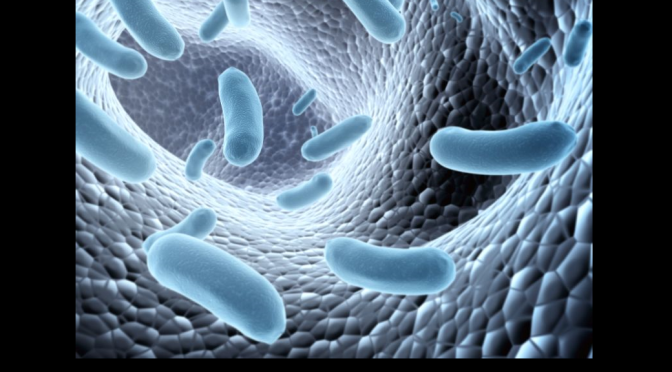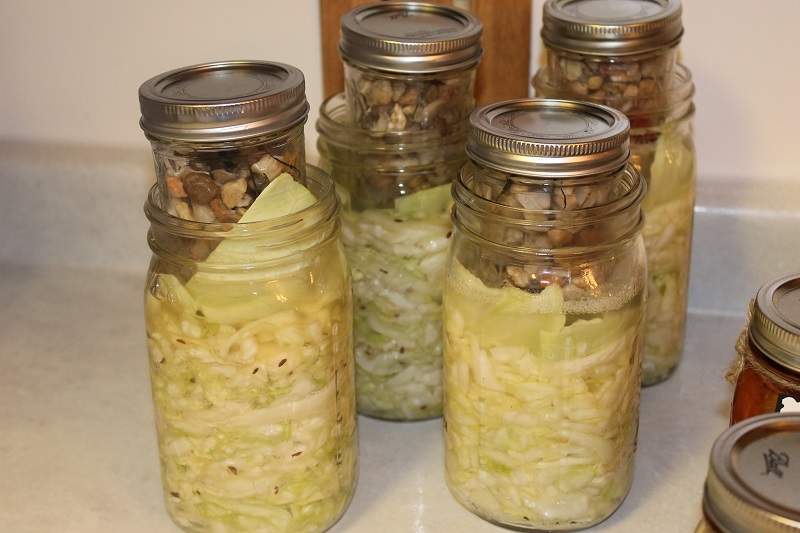by Mrs. Cog
As I begin to understand more about protecting my own health and that of my family, I find research now shows that as vital as avoiding exposure to a potential health threat may be, it is equally if not more important to condition my internal defense system. Because I cannot see the microscopic threats I encounter, I am excited to discover I can convert my body into a colonies of superheroes, ready to take on foreign invaders that would make me ill.
Perhaps you have heard that the human body is full of both beneficial and harmful micro-organisms, even when you are in a state of excellent health. The bacteria in your body outnumber your body's cells by 10 to 1. With many trillions of them co-existing inside of you, maintaining good health or succumbing to dis-ease is often as simple as finding a good internal balance within your inner physical world.
Many species of microbes live inside our digestive systems and are often referred to as gut flora. Lining the inside of the “gut system” are many millions of neurons, more than are located in the spinal cord, making it the only organ in the human body with its own independent nervous system that can continue to function even after communication with the brain is disconnected. This extensive system and the ecosystem which lives there interact with each other to ultimately determine the strength of your immune system.
It is a bit misleading to label these micro-organisms as “good” or “bad” because their presence is usually beneficial… until it is not and the balance becomes skewed. Not only do various colonies of these micro-organisms exist to keep each other in check, as well as to shut down bacteria, viruses and fungi which do not belong, but they also cue the creation and balance of brain chemicals such as serotonin and dopamine which we have all come to know and love.
At birth, every gut is sterile. But over time, everyone's gut develops a diverse and distinct brew of bacterial species, determined in part by genetics and in part by what bacteria live in and on those around us. The 100 trillion microbes that make the GI tract their playground are critical to health. Gut bacteria regulate digestion and metabolism. They extract and make vitamins and other nutrients from food that you eat. They program the body's immune system. They build and maintain the gut wall, which protects the body from outside invaders. And by their very presence, beneficial bacteria in the gut block harmful microbes from setting up camp and produce anti-microbial chemicals that defend the host against pathogens.
Gut bacteria also produce hundreds of neurochemicals that the brain uses to regulate basic physiological processes as well as mental processes such as learning, memory and mood. For example, gut bacteria manufacture about 95 percent of the body's supply of serotonin, which influences both mood and GI activity. - From the American Psychological Association
Understanding our automated immune responses is vital to staying healthy because it is directly influenced by what we eat, drink and expose ourselves to. Here are some important points to note in order to optimize our internal eco-systems.
First and foremost, when our routines include substances that are antibacterial, pasteurized, processed and irradiated, we are setting the stage for greater susceptibility to sickness as beneficial microbes are also targeted making us weaker. Genetically modified foods (GMO) and antidepressants also have drastically negative impacts on friendly bacteria. Conversely, whole, natural, raw, unprocessed and organic foods encourage a healthy balance and allow our immune system to do the job it was created for.
Probiotics are beneficial micro-organisms which we introduce to our system. A trip down the aisle at the grocery or drug store is all one needs to gasp at the prices of these for they are very expensive. Yogurt contains probiotic qualities, but are often processed or treated to render them minimally effective. All probiotics are not made equally, and as with most things I advocate looking into making your own simple, potent and cheap at home. This can be accomplished through fermented foods.
An entire market for self-fermented foods has recently burst onto the scene, although the traditions of preserving food and benefiting from the process are ancient and have been documented throughout time. From the research I have begun it seems one can ferment almost any vegetable and use a variety of methods, ranging from simple to complex, to arrive at the end result.
In our home, we have kept it simple thus far and embarked on an adventure of homemade raw sauerkraut. The simplicity of this delivery system introduces lactobacilli adding huge advantages to our immune systems as well as helping to reverse prior damage resulting in food allergies and even gluten intolerance.
The time to do away with the “kill all bacteria” mindset is here. By taking a bit of time to understand that our natural state IS one of good health and how to regain that level of immunity, we can better withstand whatever nasty bugs the world may toss in our direction.
Gut Flora Accounts for up to 80% of Immunity, Not Vaccinations Natural Society
Gut Flora Wikipedia
How microbes in the gut influence anxiety, depression Natural News
That gut feeling The APA Monitor
Gut Health Point of Return
Think Twice: How the Gut's "Second Brain" Influences Mood and Well-Being Scientific American
Probiotics: Essential Supplements Or Waste Of Money? Waking Times
How microbes in the gut influence anxiety, depression Natural News
Psychobiotics: Bacteria For Your Brain? GreenMed Info
6 Surprising Facts About the Microbes Living in Your Gut Healthline
The Extreme Importance in Maintaining Second Brain ‘Gut’ Health Natural Society
Gut bacteria linked to immune system cancer, lymphoma Medical News Today
A Diet Rich in Animal Products Alters Gut Bacteria Rapidly and Profoundly Natural Society
Prebiotic vs Probiotic – What’s the Difference? Global Healing Center
Does Sauerkraut Have All the Probiotics I Need? Livestrong
Fermenting Foods—One of the Easiest and Most Creative Aspects of Making Food from Scratch Mercola
Fermented Food for Beginners: Lacto-Fermented Vegetables Nourishing Days

